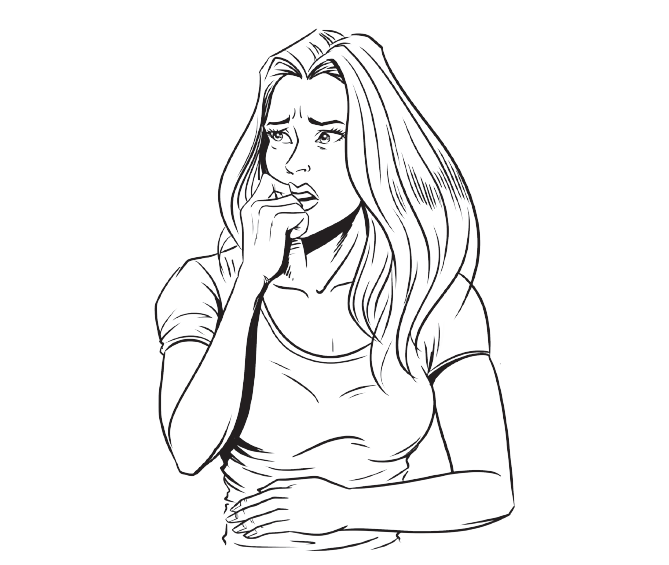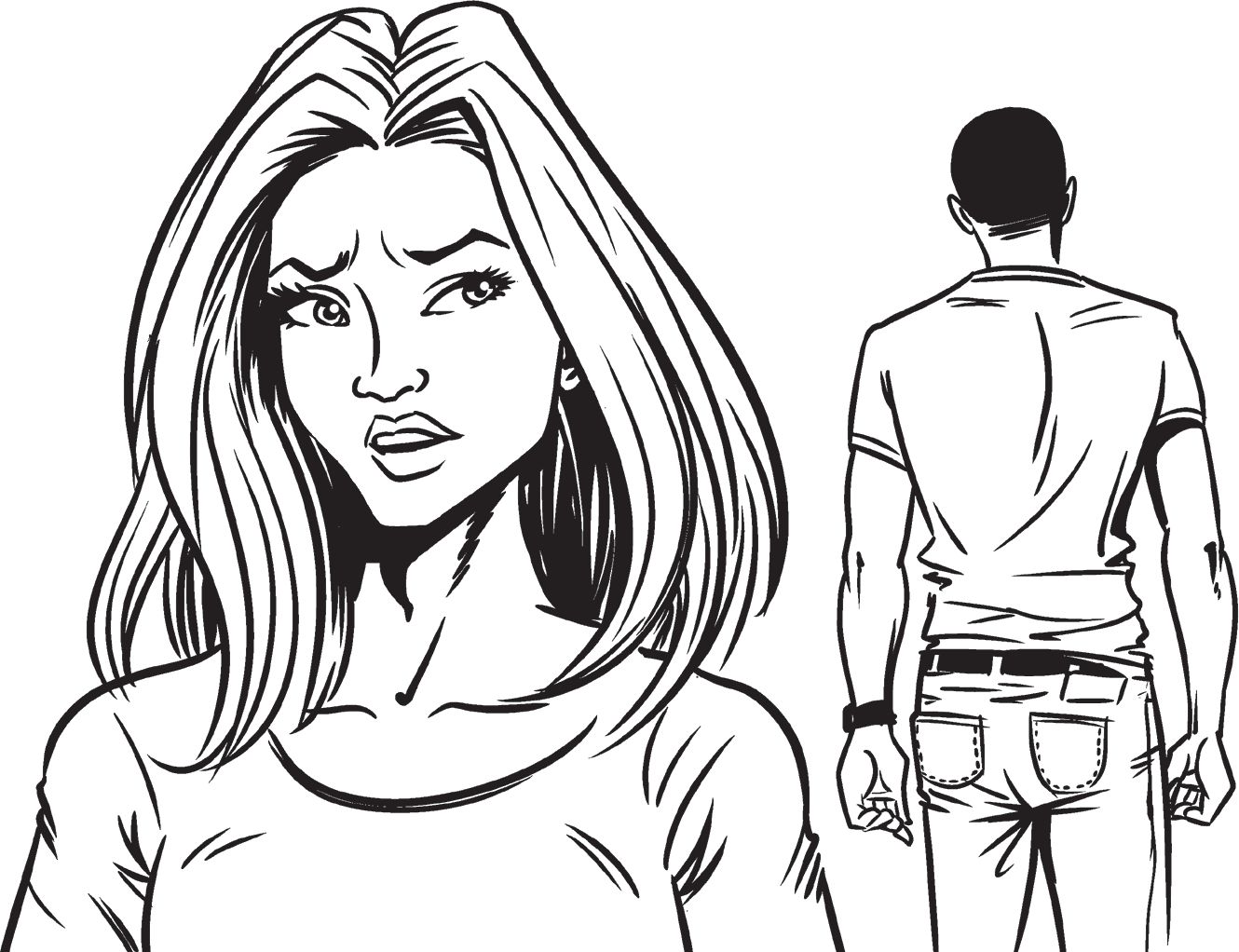How to
Describe Anxiety Disorder
by Vlasta Kuster
We can shortly describe anxiety disorder as restlessness, fear, apprehension and exaggerated worry. It is a state that people today are becoming increasingly familiar with and has an effect on both the physical body and psychological well-being and can
- completely overwhelm a person,
- impacting productivity,
- energy level, and quality of relationships as well as overall quality of life.
Let’s have a look now at five different ways that anxiety disorder can be described.

Is anxiety disorder an illness?
In the literature you’ll find descriptions of anxiety as an illness.
But is it ?
In my view, I wouldn't describe anxiety disorder as an illness as anxiety is more a state of mind, thought, emotion and body that is based on your life story.
When strong anxiety occurs, it’s a sign that changes are needed in your life. It’s a state in which excessive stress or emotional pain has accumulated in your body, and so it calls for a loving and patient cleansing of that pain.
I sincerely believe that you are not sick or crazy and are not ‘’losing it.’’ You’re just carrying too much emotional pain in your body.
You’ve experienced so many stressful events that your body can no longer handle them easily. Each such event has impacted you and marked you in some way, leaving an energy imprint that the body has difficulty accommodating.
In my opinion, it’s better if you do not conceive of anxiety as an illness that merely requires a pill to make you feel better, but rather as your body’s plea for help.
Think of anxiety as a turning point in your life which, if it becomes strong enough, will compel you to find a way out of your condition. Anxiety will guide you along a path of personal transformation that, in the end, you may even learn to like.
For you really will have to implement changes in your life. Your body simply will no longer allow you to continue living as you have been.
Anxiety disorder can be described (or characterized) by a number of physical symptoms
Anxiety disorder is recognized on the basis of somatic signs such as
- elevated pulse,
- profuse sweating,
- tingling in the hands and feet,
- pressure in the head,
- tightness in the chest, and
- shivering.
Some people describe anxiety disorder as having extreme pressure in the head or chest
- others have stomach pain,
- headaches,
- still others feel a lump in their throats or
Sometimes the condition becomes intolerable. And what is particularly interesting about this is that a conventional medical exam usually will not show that your body is sick.
Blood tests, urine samples, EKG, and so forth all indicate that you’re healthy, yet you feel anything but healthy.
Your entire body is telling you that something is very wrong. Anxiety can sometimes be very, very upsetting, even to the point of being almost intolerable.
But let me tell you a secret — anxiety means that you are physically healthy, but in a very poor state energetically.
This is both good and bad news. It’s good that you’re not sick, but energetically you are so exhausted that you simply have to do something to restore yourself to a normal state of functioning.
You don’t have cancer, you’re not on the verge of a heart attack or stroke, and you’re not losing your mind. It’s just that too much stress has built up in your body’s energy system.
And that system needs a solution — fast.
Anxiety will completely take over your thoughts and feelings
When you feel anxious, the feelings are usually sufficiently strong to preoccupy you entirely. It is as if someone else were managing your thoughts and, consequently, your emotions.
Some people feel as if
- they don’t belong anywhere,
- that no one loves them, and
- they fear they’re going to lose their grip on their sanity.
Sometimes anxiety is accompanied by a powerful fear of sickness or death or other worries about themselves or those closest to them.
It is especially important at such times to make an effort to be with your thoughts and feelings and not to allow yourself to be completely overwhelmed by them.
Know that you are neither your thoughts nor your feelings, which are mere transitory states that will pass once you work through their negative causes.
Don’t allow yourself to fall victim to desperation.
You are still healthy and normal; it’s just that past emotion pain is trying to assume control over you.
Anxiety disorder affects your quality of life
People who are anxious also have difficulty with concentration and memory. Their productivity is therefore greatly lessened. All their thinking, feeling and behaving begins to revolve around the anxiety itself.
Anxiety turns a person’s life upside-down and causes them to begin avoiding situations that might trigger it.
Some people avoid driving on highways or through tunnels, others avoid large shopping centers, and still others can’t tolerate waiting in line at the cash register.
All actions, including even plans for work and vacation, are evaluated in relation to the anxiety. It is important that you not give in to it, that you not lose hope, and that you find a way to overcome anxiety permanently.
Anxiety disorder will not be understood by your relatives and friends
People who have never experienced the condition of anxiety have a hard time understanding it.
You may find that your loved ones do not really get what’s going on with you. They will tell you you’re over-dramatizing, that you refuse to help yourself, or that it’s not that big a deal.
They will offer you advice that in all likelihood won’t help much. This is because the only people who truly understand anxiety are those who’ve been through it themselves and have experience first-hand how powerless a person feels when in the throes of powerful negative emotions.
This is why I advise you to seek help from a person who will understand what’s happening, and who can be present for you during a crisis without judgment.
In conclusion I would like to say a few words about how to overcome the aforementioned difficulties that anxiety brings with it.
First, you have to accept the fact that you are physically completely healthy, but energetically exhausted. You body has simply accumulated too much stress, or to put it another way, you’ve stored up too much emotional pain. This pain may have been held unconsciously for many years, but in an instant it can come to life and turn your world on its head.
Fortunately there is a way to overcome past emotional pain, and there is a way that many people have used to leave anxiety behind.
The first step toward a solution is to honestly accept the condition you’re currently in; the second is to seek out a therapist who knows how to help you get beyond anxiety once and for all.
And you can do this regardless of how strong your symptoms are, how long you’ve had them, or how many of them you experience.
I personally highly recommend EFT therapy, a therapy that takes you one step at a time through the releasing of negative emotions and thoughts. Gradually your symptoms will vanish and you will once again be able to live and work normally.
EFT is a therapy that allows you to permanently overcome anxiety.
And it’s well worth it to find a solution and once again begin to live in joy and peace.
Vlasta Kuster, holds an MA degree in Basic Medical Sciences and uses her 3-month EFT therapy in her work to help people to do away with panic attacks and anxiety for good. She has more than 10-year experiences in EFT therapy and achieves at least 90% success in permanently eliminating anxiety and panic attacks. You may contact her through her website freeofpanic.com

